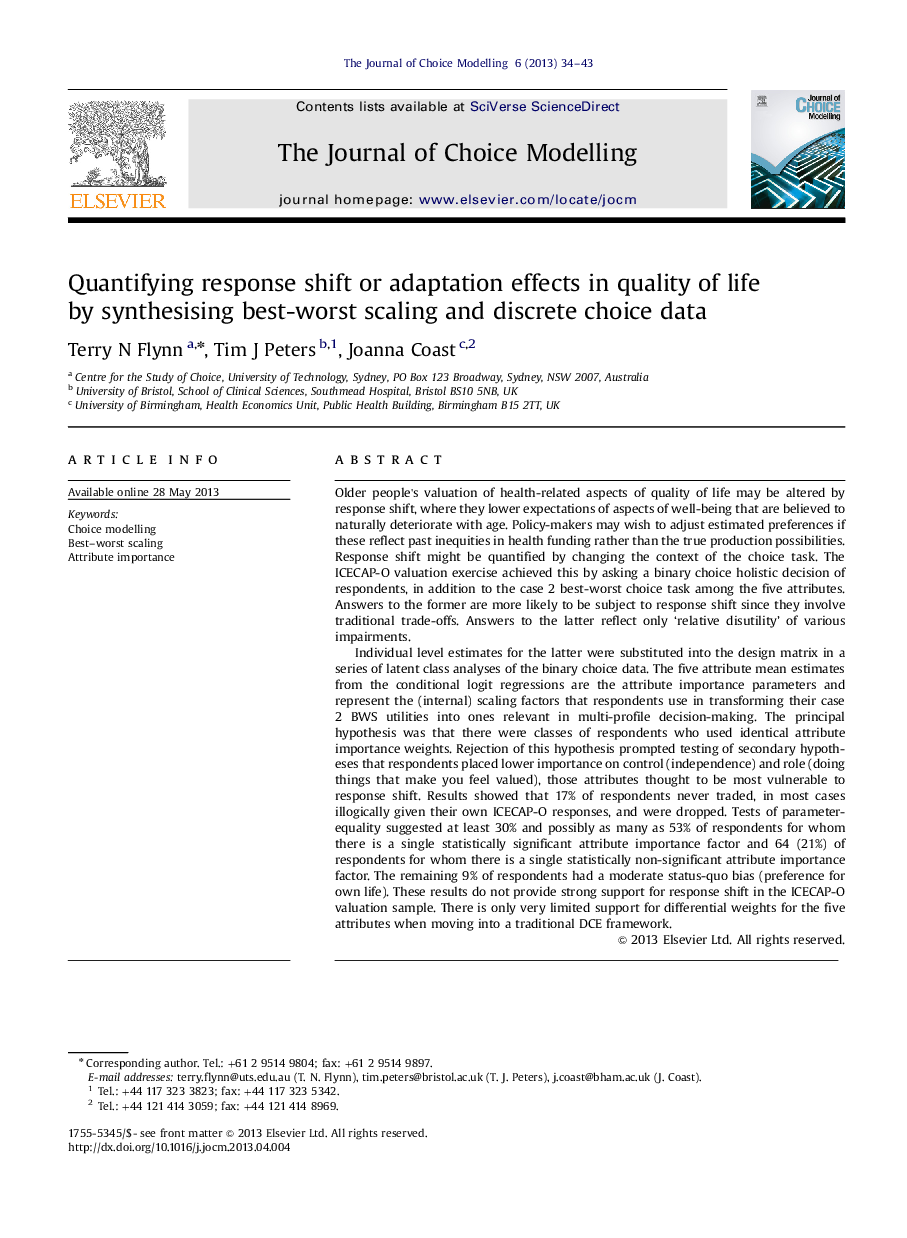| کد مقاله | کد نشریه | سال انتشار | مقاله انگلیسی | نسخه تمام متن |
|---|---|---|---|---|
| 5091946 | 1478408 | 2013 | 10 صفحه PDF | دانلود رایگان |
عنوان انگلیسی مقاله ISI
Quantifying response shift or adaptation effects in quality of life by synthesising best-worst scaling and discrete choice data
دانلود مقاله + سفارش ترجمه
دانلود مقاله ISI انگلیسی
رایگان برای ایرانیان
کلمات کلیدی
موضوعات مرتبط
علوم انسانی و اجتماعی
مدیریت، کسب و کار و حسابداری
بازاریابی و مدیریت بازار
پیش نمایش صفحه اول مقاله

چکیده انگلیسی
Individual level estimates for the latter were substituted into the design matrix in a series of latent class analyses of the binary choice data. The five attribute mean estimates from the conditional logit regressions are the attribute importance parameters and represent the (internal) scaling factors that respondents use in transforming their case 2 BWS utilities into ones relevant in multi-profile decision-making. The principal hypothesis was that there were classes of respondents who used identical attribute importance weights. Rejection of this hypothesis prompted testing of secondary hypotheses that respondents placed lower importance on control (independence) and role (doing things that make you feel valued), those attributes thought to be most vulnerable to response shift. Results showed that 17% of respondents never traded, in most cases illogically given their own ICECAP-O responses, and were dropped. Tests of parameter-equality suggested at least 30% and possibly as many as 53% of respondents for whom there is a single statistically significant attribute importance factor and 64 (21%) of respondents for whom there is a single statistically non-significant attribute importance factor. The remaining 9% of respondents had a moderate status-quo bias (preference for own life). These results do not provide strong support for response shift in the ICECAP-O valuation sample. There is only very limited support for differential weights for the five attributes when moving into a traditional DCE framework.
ناشر
Database: Elsevier - ScienceDirect (ساینس دایرکت)
Journal: Journal of Choice Modelling - Volume 6, March 2013, Pages 34-43
Journal: Journal of Choice Modelling - Volume 6, March 2013, Pages 34-43
نویسندگان
Terry N. Flynn, Tim J. Peters, Joanna Coast,